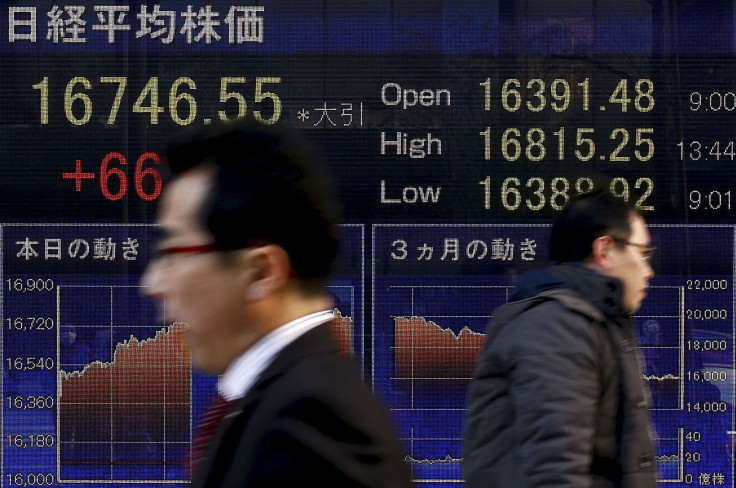Oil Supports Global Stock Markets, China Lags On Domestic Concerns

Rising oil and commodity prices gave global stock markets a boost Tuesday, with most major indexes closing or trading higher. China was a notable exception, where the stock market had rallied on Monday but fell Tuesday as investors remained wary of a sustained improvement in the real economy of the country.
In the Far East, Japanese stock markets closed higher, with the Nikkei 225 Index in Tokyo closing 1.13 percent up. The yen finally declined against the dollar after a weeklong rally, which hurt stock market sentiment. The Japanese currency had become a safe haven for investors and reached an 18-month high against the dollar on Monday. A strong yen is bad for export-oriented Japanese companies, which in turn lowers their stock prices.
The Kospi Index in South Korea gained 0.56 percent and Hong Kong’s Hang Seng Index closed 0.31 percent higher. In mainland China, however, domestic concerns dragged the markets down, with the Shanghai Composite and Shenzhen Composite indexes losing 0.34 percent and 0.86 percent, respectively, while the Nasdaq-style tech-heavy ChiNext Index closed 0.84 percent lower.
The S&P/ASX 200 Index in Australia gained 0.89 percent and India’s S&P BSE Sensex closed trade 0.51 percent higher. Singapore’s Straits Times Index also posted marginal gains of 0.19 percent.
European stock markets opened lower but taking cues from Asia, and also supported by stable crude oil prices, the pan-European Stoxx 600 Index was trading about 1.2 percent higher post noon. The FTSE 100 in London had recovered its morning losses and entered positive territory, while the CAC 40 in France and DAX in Germany were trading 0.26 percent and 0.59 percent higher, respectively.
In the United States, index futures were all positive at about 6:30 a.m. EDT. Dow Jones futures were up 0.25 percent, S&P 500 futures were 0.34 percent higher and Nasdaq futures had gained 0.43 percent.
Affected by falling shale production in the U.S., crude oil prices also gained early Tuesday. Brent, the global benchmark, was 1.31 percent higher, trading for about $43.4 a barrel just after 6:00 a.m. EDT. Meanwhile, West Texas Intermediate, the U.S. benchmark, was trading about a percent higher at $40.76 a barrel.
© Copyright IBTimes 2025. All rights reserved.





















